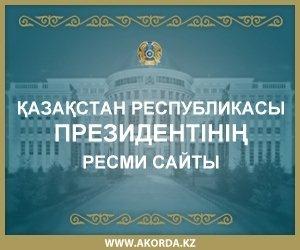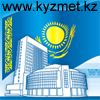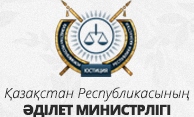Brief information about electoral system of the RK
The Constitution of the Republic of Kazakhstan of 1995 defined free elections as the fundamental principle of organising state power, and the people as the bearer of sovereignty and the only source of state power. The Republic of Kazakhstan is a unitary state with a presidential form of government.
Democratic elections are competitive, periodic and representative elections, during which citizens with wide discretion elect their representatives to power structures on an alternative basis. Competitive elections ensure that different political parties and candidates participate in elections. They all enjoy freedom of speech, assembly, movement, whatever is necessary to make their political views heard and to present alternative candidates to voters. The legislation of the Republic of Kazakhstan ensures the periodicity of elections, representation in government bodies of various social groups of the population, openness and transparency of the activities of electoral bodies.
Article 33 of the Constitution of the Republic of Kazakhstan guarantees the right to elect and be elected to state bodies and local self-government bodies, as well as to participate in the republican referendum to citizens of the Republic who have reached the age of 18, regardless of their origin, social, official and property status, gender, race, nationality, language, relation to religion, beliefs, place of residence or any other circumstances. Citizens recognised by a court as incompetent or held in places of deprivation of liberty by a court verdict do not have the right to elect and be elected, to participate in a republican referendum.
Being an active member of many authoritative international organisations, Kazakhstan adheres to all the obligations assumed to hold free and competitive elections. Elections of the Head of State, members of the Parliament and maslikhats of the Republic of Kazakhstan, as well as akims of districts, cities of regional significance, cities of district significance, villages, settlements, rural districts are held in our country in conditions of openness and publicity, in accordance with national legislation and generally recognised principles of democratic elections laid down in the Universal Declaration of Human Rights (1948), the International Covenant on Civil and Political Rights (1966), the Document of the OSCE Copenhagen Meeting (1990).
The right to elect and be elected is regulated by the Constitutional Act “On Elections in the Republic of Kazakhstan,” adopted in September 1995.
According to the provisions of the Constitution and this law, the elections of the President, members of the Mazhilis of the Parliament, maslikhats, as well as akims of districts, cities of regional significance, cities of district significance, villages, settlements, rural districts of the Republic of Kazakhstan are held on the basis of universal, equal and direct suffrage by secret ballot.
The President of the Republic of Kazakhstan is elected for a term of seven years. A citizen of the Republic by birth, not younger than forty years old, fluent in the state language, living in Kazakhstan for the last fifteen years and having a higher education and experience in public service or in elected public positions for at least five years may be elected President of the Republic.
The Parliament of the Republic of Kazakhstan is the highest representative body of the country and consists of two Chambers: the Senate and the Mazhilis, acting on a permanent basis. A citizen of the Republic of Kazakhstan and permanently residing on its territory for the last ten years may be a member of the Parliament.
The Senate is made up of fifty members. Forty members of the Senate are being elected by two people from each region, city of republican significance and the capital of the Republic. Half of the elected members of the Senate are re-elected every three years. Elections of members of the Senate are carried out on the basis of indirect suffrage by secret ballot. Ten members of the Senate are appointed by the President of the Republic, five of which – at the suggestion of the Assembly of the People of Kazakhstan.
A person who has reached thirty years of age, has a higher education and work experience of at least five years, permanently residing in the territory of the relevant region, city of republican significance or the capital of the Republic for at least three years may be a member of the Senate.
The term of office of members of the Senate is six years.
The Mazhilis consists of ninety-eight members elected by a mixed electoral system. Sixty-nine members are elected from political parties on party lists in a single nationwide constituency. Twenty-nine – in single-mandate territorial constituencies.
A person who has reached twenty-five years of age may be a member of the Mazhilis.
The term of office of Mazhilis members is five years.
Maslikhats are elected by the population on the basis of universal, equal, direct suffrage by secret ballot for a period of five years.
Members of maslikhats of regions, cities of republican significance and the capital are elected according to a mixed electoral system: half of the members are elected by the system of proportional representation in the territory of a single territorial constituency, and the other half by single-seat territorial constituencies.
Members of maslikhats of districts and cities of regional significance are elected in single-seat territorial constituencies.
A citizen of the Republic of Kazakhstan who has reached twenty years of age may be elected a member of the maslikhat.
Akims of districts, cities of regional significance, cities of district significance, villages, settlements, rural districts of the Republic of Kazakhstan are elected to office for four years by the population of the corresponding administrative-territorial unit on the basis of universal, equal and direct suffrage by secret ballot from among citizens of the Republic of Kazakhstan aged not younger than twenty-five years old, meeting the requirements of the Law of the Republic of Kazakhstan “On local government and self-government in the Republic of Kazakhstan” and legislation in the field of public service.











